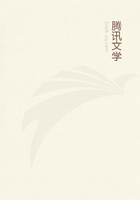
第44章 CHAPTER XXI(1)
But behold!As soon as I went out on the adventure-path I met John Barleycorn again.I moved through a world of strangers,and the act of drinking together made one acquainted with men and opened the way to adventures.It might be in a saloon with jingled townsmen,or with a genial railroad man well lighted up and armed with pocket flasks,or with a bunch of alki stiffs in a hang-out.
Yes;and it might be in a prohibition state,such as Iowa was in 1894,when I wandered up the main street of Des Moines and was variously invited by strangers into various blind pigs--I remember drinking in barber-shops,plumbing establishments,and furniture stores.
Always it was John Barleycorn.Even a tramp,in those halcyon days,could get most frequently drunk.I remember,inside the prison at Buffalo,how some of us got magnificently jingled,and how,on the streets of Buffalo after our release,another jingle was financed with pennies begged on the main-drag.
I had no call for alcohol,but when I was with those who drank,Idrank with them.I insisted on travelling or loafing with the livest,keenest men,and it was just these live,keen ones that did most of the drinking.They were the more comradely men,the more venturous,the more individual.Perhaps it was too much temperament that made them turn from the commonplace and humdrum to find relief in the lying and fantastic sureties of John Barleycorn.Be that as it may,the men I liked best,desired most to be with,were invariably to be found in John Barleycorn's company.
In the course of my tramping over the United States I achieved a new concept.As a tramp,I was behind the scenes of society--aye,and down in the cellar.I could watch the machinery work.I saw the wheels of the social machine go around,and I learned that the dignity of manual labour wasn't what I had been told it was by the teachers,preachers,and politicians.The men without trades were helpless cattle.If one learned a trade,he was compelled to belong to a union in order to work at his trade.And his union was compelled to bully and slug the employers'unions in order to hold up wages or hold down hours.The employers'unions like-wise bullied and slugged.I couldn't see any dignity at all.And when a workman got old,or had an accident,he was thrown into the scrap-heap like any worn-out machine.I saw too many of this sort who were making anything but dignified ends of life.
So my new concept was that manual labour was undignified,and that it didn't pay.No trade for me,was my decision,and no superintendent's daughters.And no criminality,I also decided.
That would be almost as disastrous as to be a labourer.Brains paid,not brawn,and I resolved never again to offer my muscles for sale in the brawn market.Brain,and brain only,would Isell.
I returned to California with the firm intention of developing my brain.This meant school education.I had gone through the grammar school long ago,so I entered the Oakland High School.To pay my way I worked as a janitor.My sister helped me,too;and Iwas not above mowing anybody's lawn or taking up and beating carpets when I had half a day to spare.I was working to get away from work,and I buckled down to it with a grim realisation of the paradox.
Boy and girl love was left behind,and,along with it,Haydee and Louis Shattuck,and the early evening strolls.I hadn't the time.
I joined the Henry Clay Debating Society.I was received into the homes of some of the members,where I met nice girls whose skirts reached the ground.I dallied with little home clubs wherein we discussed poetry and art and the nuances of grammar.I joined the socialist local where we studied and orated political economy,philosophy,and politics.I kept half a dozen membership cards working in the free library and did an immense amount of collateral reading.